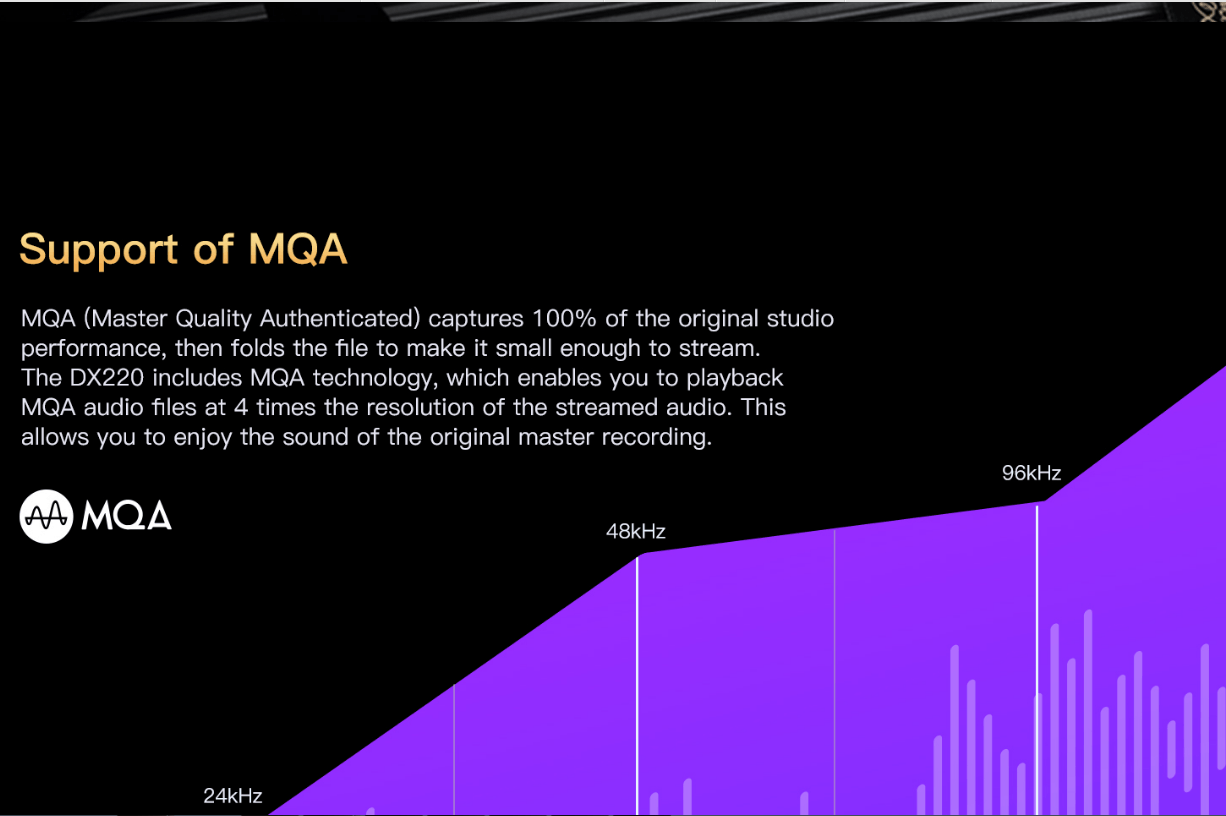Who made MQA?
MQA, which stands for Master Quality Authenticated, is an audio technology that was originally developed by Bob Stuart, co-founder of British hi-fi manufacturer Meridian Audio, and is now licensed by MQA Ltd.
Meridian Audio produces DACs, amps, and speakers as well as software like MQA, but they’re far out of the reach of most buyers. Unless it’s a total flop, MQA will easily be the company’s most influential and wide-reaching creation to date. It was announced in 2014 and was reportedly in the works for five years in the run-up.
What is MQA?
MQA enables the delivery of studio-quality sound in digital files small enough to be streamed. High-res files are huge. Most of the file above a certain frequency is noise and, because linear PCM treats all information in the file as equal, this makes high sample rate files hugely inefficient, especially for streaming. Thus the allure of MQA; its ability to fold big files into smaller more manageable sizes, but retain all the “good parts” when unfolded at the end.
MQA also guarantees a direct link between the artist and listener in the form of an authentication feature. On playback device that supports MQA, a green light indicates the file is MQA, and a blue light indicates the MQA file has been approved at a studio or copyright owner level. So at first glance, MQA is a high-quality audio format that comes in a manageable size and even promises to enhance existing audio by fixing errors in the authenticated original recordings and masters.
The MQA encoding process manages this using an “origami” technique that “folds” high-frequency information existing outside the main audio band (approximately 20 hertz to 20 kilohertz, the frequency range of human hearing) into the lower frequencies. Since that extended range consists mainly of harmonic information that’s considered inaudible, MQA’s scheme works around the inefficiencies of standard PCM digital audio, which would encode all frequencies equally — even ones outside the human hearing range.
Another issue that MQA addresses are the “time smearing” created by analog-to-digital conversion during the original mastering. It does this by applying a digital correction filter in a process that MQA refers to as “de-blurring.” In addition, MQA files carry information to correct for time smearing effects created on output by the digital-to-analog conversion process in an MQA-certified DAC.
Where will we get MQA?
How to play MQA files?
If you're looking to play such purchased files through a PC or laptop, dedicated desktop music player software, such as Audirvana and Roon, also support MQA.
As with the desktop app, the Android and iOS apps can complete the first 'unfold' of MQA file decoding, outputting streams to a maximum of 24-bit/96kHz. However, the only way to entirely unpackage an MQA file for playback, and therefore give you a more accurate representation of the file based on your system characteristics, is by pairing your smartphone with an MQA-compatible DAC or DAP, taking the decoding process away from the software (the apps). We suggest investing in something like the iBasso DX160 DA player. If the $ 470 cost of that one makes you cringe, then we suggest something portable DAC like the xDuoo XD05 with DSD decoding (full review here), which costs a little $ 230.

For further explanations around MQA and the philosophy behind it, see bobtalks.co.uk/




Leave a comment
All comments are moderated before being published.
This site is protected by hCaptcha and the hCaptcha Privacy Policy and Terms of Service apply.